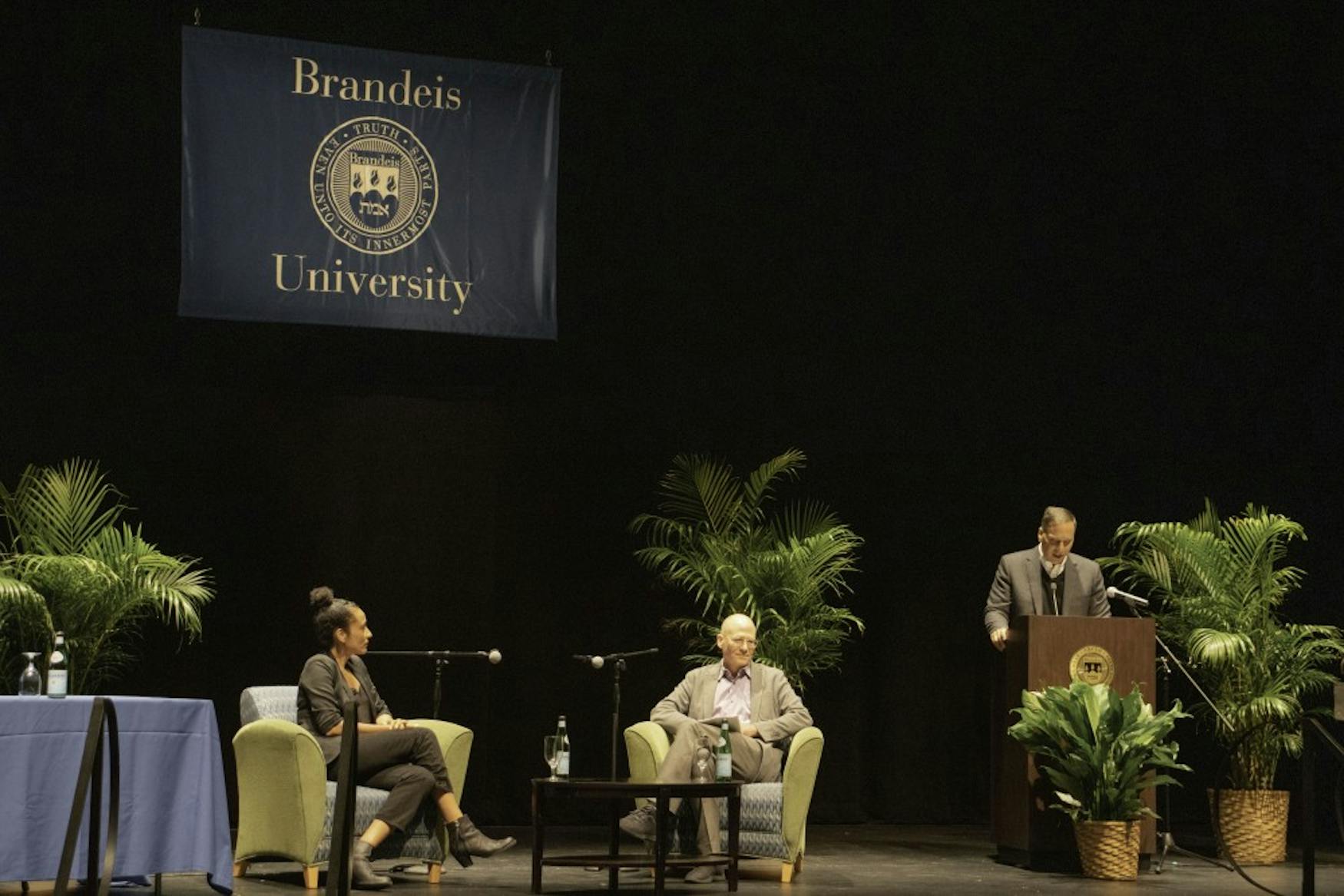Brandeis Swings a Visit From Smith
Author Zadie Smith spoke about her novel "Swing Time" at this year's New Student Forum.
Before kicking off her book tour, author Zadie Smith joined the Brandeis community on Sept. 12 to discuss her novel “Swing Time” with students and faculty. The event, part of the Helen and Philip Brecher New Student Forum, aims to provide an opportunity for students to deepen their understanding of the book and get inspired by exploring the book’s themes. Smith’s visit involved a dinner with select faculty and a gathering in the International Lounge before a question-and-answer session in Spingold Theater Center.
At Spingold, Smith discussed the book with Prof. John Plotz (ENG) before answering questions from the audience. During the discussion, Smith answered questions about her early experiences as a reader and her family’s immigrant background. She differentiated her perception about writing from an alleged common view among young people, that “writing is about your own voice,” stating that writing is more about ventriloquism for her, and the coexistence of many different voices.
Smith then explained her motive to deploy double path storytelling in her novel, where two characters who began with similar backgrounds gradually diverge during their course of life. Her interest in that way of organizing the story was stirred by “the extremity of the versions of lives,” which she further specified using her experience: “It’s possible to me, quite often, when I walk on the street where I grew up and see homeless people whom I was in school with, who were in my class, who I knew.” Smith also pointed out the structural inequality she saw behind the individual tales, and reasoned that is why she has been working on a project to fictionalize and humanize the social mechanism underlying the difference people see on a daily basis.
Born into an immigrant family, Smith put this theme within the context of immigration, saying, “There’s another life that could have been lived” and emphasizing how contingency has become “a creative place to be” for her where she added “existentially, you are an accident.”
Comparing her writing to a typical English novel, Smith criticized the mildness and rationalism of a traditional English novel “even in the face of the world’s biggest horror.” She recognizes the existence of internal fury and asserted that the model of English literature is never able to express such anger explicitly, which for her, actually makes those novels “less human.”
When Plotz asked Smith to elaborate on an earlier point about social media and the internet, Smith explained that she believes it is important for the young audience to think about the world. Zadie invited students to think critically about “the internet behind the internet you see” and the unprecedented power of businesses which process data and gather information. She compared the internet to novels, saying that both attempt to influence and modify an audience. The difference, however, is that readers are still free in front of a book despite the efforts made by the author. However, with the internet being a captured market, its users could actually be controlled given a certain behavioral pattern. Envisioning that there must be some kind of literature out there to “wake people from their living dreams,” Smith called for the awakening of people to strive for full freedom and humanity despite recognizing the significant constraints imposed by internet.
— Jiashu Xu contributed reporting.



Please note All comments are eligible for publication in The Justice.